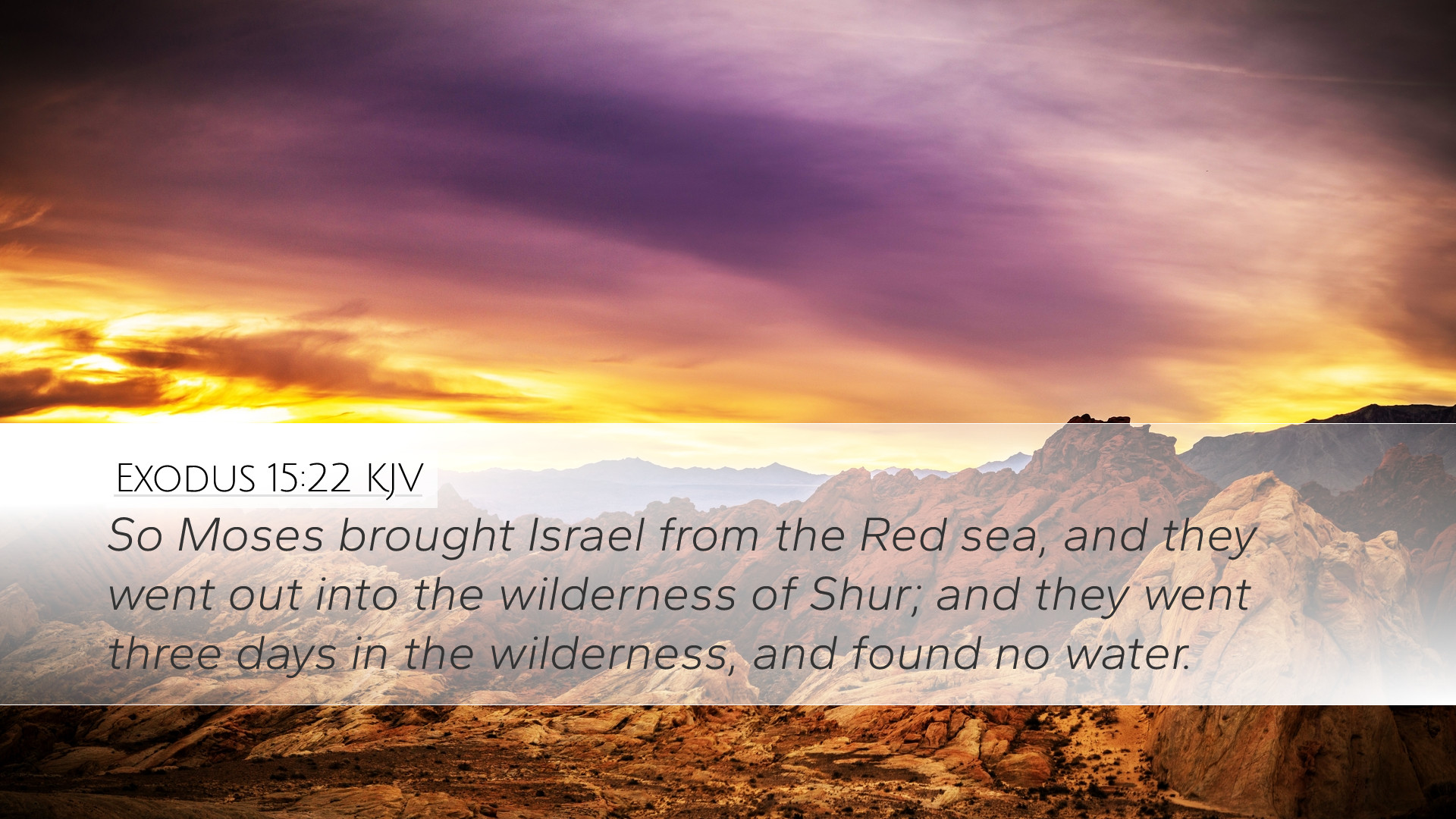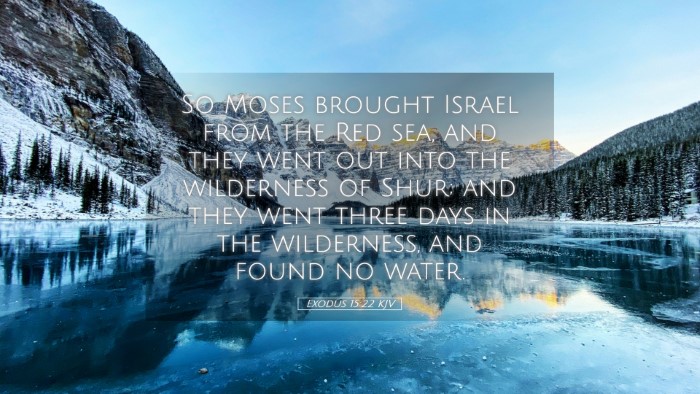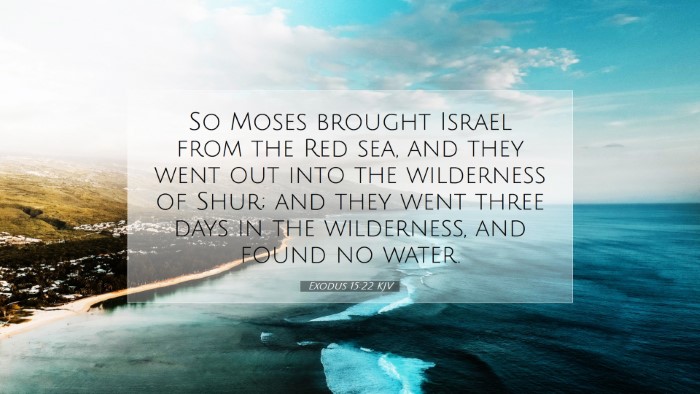Bible Commentary on Exodus 15:22
Verse Context: Exodus 15:22 states, "Then Moses led Israel from the Red Sea, and they went into the Desert of Shur. For three days they traveled in the desert without finding water." This verse serves as a pivotal moment in the journey of the Israelites following their miraculous deliverance from Egypt.
Overview of the Passage
This passage highlights the transition of the Israelites from a place of miraculous salvation to a period of testing and trial in the wilderness. The experience in the Desert of Shur is significant both contextually and theologically, as it displays the faithfulness of God juxtaposed against the often wavering faith of His people.
Theological Significance
The journey into the wilderness can be seen as a metaphor for the Christian life, where believers often transition from moments of powerful spiritual experiences into seasons of trial and testing. This passage serves as a reminder that such tests do not necessarily indicate abandonment by God but can be part of His divine purpose.
Reflection on the Wilderness Experience
Matthew Henry** emphasizes that the wilderness, while barren and deserted, is not devoid of God’s presence. The initial experience of three days without water is a significant test for the Israelites, illustrating the need for faith even when physical sustenance appears lacking. Henry notes that:
- God often leads His people into difficult circumstances to prove their faith.
- The absence of water symbolizes spiritual thirst, often encountered by believers.
- Testing phases serve to reveal the heart's condition and reliance upon God.
Comments from Albert Barnes
Albert Barnes** examines the practical implications of the journey. He notes that the Israelites, despite having witnessed miraculous signs, quickly encountered the reality of their need for water:
- This highlights human frailty; despite past experiences of divine provision, doubts can easily arise.
- The lack of immediate resources can challenge the faith of even the most devoted believers.
Barnes encourages believers to remember that trials are common in the life of faith and serve as opportunities to witness God’s provision anew.
Insights from Adam Clarke
Adam Clarke** provides a detailed commentary on the specific geography mentioned in this verse:
- The Desert of Shur is a harsh and uninhabitable place, symbolizing the trials faced by the Israelites.
- Clarke suggests that the choice of this desert is intentional, as it underscores God’s power to provide in desolate times.
- He encourages perseverance, believing that just as God delivered Israel from Egypt, He would also care for them during their trials.
Applications for Pastoral Ministry
For pastors and church leaders, this passage serves as a reminder that congregations will face periods of testing. The following applications can be drawn:
- Encourage your congregation to maintain faith during trials, reminding them of God’s past provision.
- Teach the importance of community support in times of spiritual ‘dryness’ or wilderness experiences.
- Cultivate spaces where sharing struggles is welcomed, allowing for collective encouragement and prayer.
Encouragement for Students and Theologians
Students of theology can appreciate the rich symbolism in this passage:
- Examine the historical and theological context of Israel's exodus as a precursor to Christian themes of redemption and reliance on divine grace.
- Consider the biblical theme of wilderness as a formative journey in both the Old and New Testaments.
- Engage with the contrasting dynamics of freedom from slavery amid the challenges of reliance on God in uncertain circumstances.
Summary
Exodus 15:22 invites deep reflection on the nature of faith during trials and the importance of recognizing God’s continual presence. Despite the brutality of the wilderness and the anxiety it brings, it can also be a place where faith is fortified and where God’s providence is made known. As we engage with this text, we are encouraged to find hope and sustenance in God's unfailing love, even amidst challenges.


